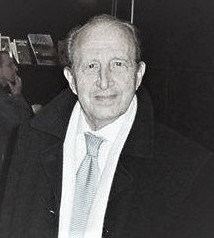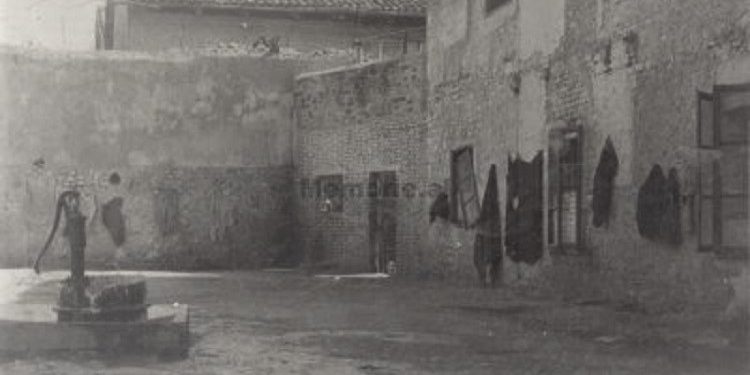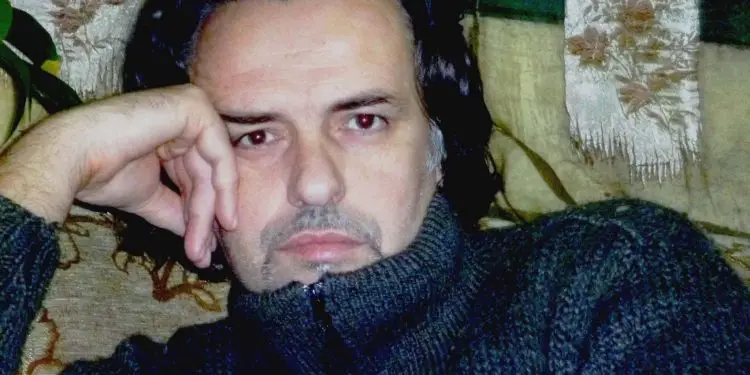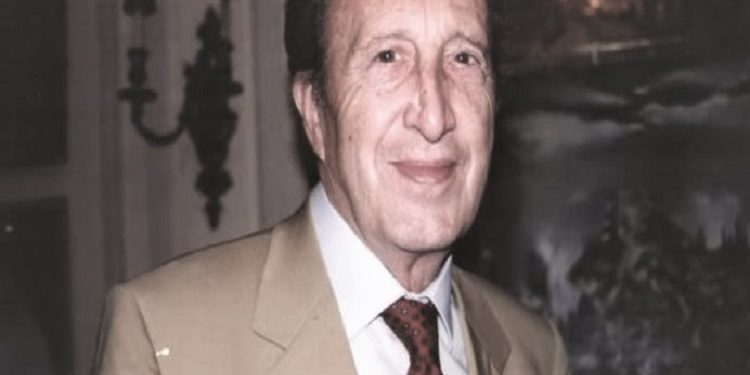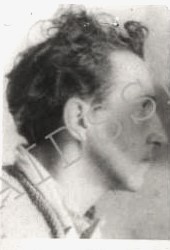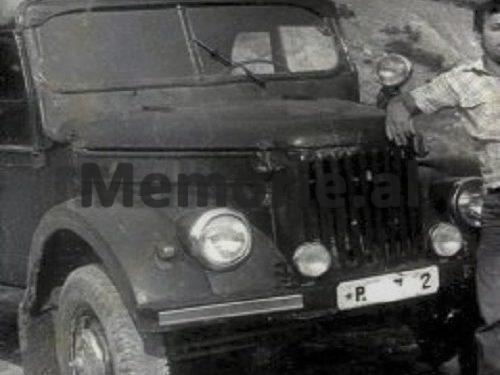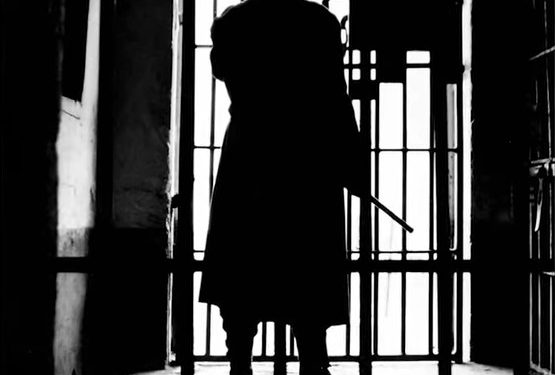By Albert Vataj
The first part
Jusuf Vrioni: “The fact that I was translating Kadare, put me in a delicate position, because he was not seen favorably by some power structures”-
Memorie.al / Exactly 108 years ago, on March 16, 1916, one of the most outstanding personalities of Albanian culture, Jusuf Vrioni, was born. The Albanian tradition of translation preserves in its memory the names and work of many passionate and self-sacrificing zealots, who with their grace built bridges of communication, making the spirit and the Albanian aesthetic world universal. Jusuf Vrioni is one of those stars that shone in the sky of this miracle. Today, on this occasion, we humbly owe a memory to the modest man, the world-class intellectual, the translator who learned to speak French, the masterpiece of the great writer, Ismail Kadare.
He was and remained an incomparable example of a good, modest and white-hearted man. Although this would not save him from the monstrous claws of the dictatorship. He always remained like this, even when the beast of horror did not stop the hell and did not spare the flames of terror, this innocent and peaceful creature.
In the book “Memories of a European”, prepared by the French researcher Eric Fay, the “Golgotha” of that man who was “crucified” and “resurrected” goes step by step, to come and come again in the memory of generations, as a a frightening testimony, like a compelling truth, that has gone through the calvary of a divine “Christ”. The Albanian consciousness needs to find rejuvenating abilities, in this browsing of the pages of communist hell and to better understand the regime, but above all the innocent man, who was able to challenge with his titanic resistance. And the example of Jusuf Vrioni is an emblem of this dedication.
Jusuf Vrion’s compelling narrative
I remember that day like a wound made with the ax of my thirty-two year old. It was Saturday, September 13, 1947, the day before a football match between Albania and Yugoslavia, for which I had a ticket. I was looking forward to this meeting of the Balkan Games, but also with fear, because two years ago, in Belgrade, in front of my eyes, Albania was beaten 11 to 2. But, first of all, I was waiting for a girl with whom I would love to spend the evening The city clock was almost twenty o’clock. After a spring and a summer of increasing arrests, Tirana was anxiously and fatalistically waiting for winter.
Having arrived earlier, I was walking to the place of our meeting, where, 20 years later, the statue of the Albanian National Hero, Skenderbeu, would be erected on horseback. Night was falling and the white silhouette of the minaret of the mosque stood out in the dimness. Suddenly, four people appeared behind me, who addressed me harshly: “You are Jusuf Vrioni? You will come with us! We have some questions to ask”. Shocked by their tone, as well as by the formulas they used and which had already become known to many in Albania, I immediately understood and faded away. It was the time when the “deputies’ trial” was taking place, which would end, as I would later learn, with 18 death sentences.
I had followed this macabre farce from my office (at that time I was a translator at the Union of Albanian Women), from where I could hear the rebroadcast of the process through the loudspeakers located in the square. Many of my friends, including my cousin Aziz, had been put in jail with the mass arrests during the month of May and we had no news from them. I quickly thought that my friend would be waiting for me for a long, long time if she wanted to meet me again, and that everything was turning upside down in my life. I walked behind those people, thinking about my mother, whom I had left alone in the room where we lived. You had to be very naive, to think that you could go to the premises of the Security, for a simple investigation, and then be released!
We arrived at the Internal Section, a notorious place in Tirana for its cells and basements, anterooms of death, where they questioned, provoked and tortured. Everyone knew it was a hot spot. However, I was greeted with a tone that was both funny and secretly heartfelt: “Hey Yusuf, do we have anything new?” What do the English say? What about the Americans”? These questions, which they asked me on the spot, in a tone that seemed to be jovial, meant my relationships, tennis matches with foreign mission workers. They were words of capital importance: through them it was guessed in which direction the investigations would continue, in that of espionage on behalf of an ideologically hostile power…!
They took me to a ghastly character, Skënder Kosova, member of a diabolical trio, who sowed terror in Tirana, where he made mass arrests at night. At that time, there was no one who was not afraid, if he heard the “Jeep” of these “devils of death”, he would stop in front of the door of the house, in the middle of the night! All three of these killers made a quick and brutal inspection of the apartment and, at the end of it, took one or several unfortunates with them. These were taken to different parts of the city, sometimes directly to the prison, sometimes to one of the buildings of the Interior Section, where she worked, which was not yet named at that time; Security, but the People’s Guard.
They took everything I had in my pockets, and then led me, handcuffed behind my back, to the top of a dark staircase that led down to a cellar. Apparently, this was the first pressure crack. They wanted to tell me what awaited me. I heard a crash coming from under the stairs. Then more distinctly, a screech of chains, accompanied by groans. Someone was languishing in a cellar, having been tortured for a long time. Who was it? Maybe any of the friends who were arrested in the last few months? They left me there for about 2-3 hours, at the top of the stairs. A new phase of my life was beginning, while the cellars were its prelude…!
At that moment, my entire youth appears in my memory, as if fragmented, reflected by a luminous kaleidoscope. No matter how much I tried to convince myself that in every circumstance there is always a hope, even if it is weak, that there is nothing immovable in history, still, I could not shake the conviction that the oppressive regime in power would last long and that I had to resist, to find strength, somewhere within myself, to face the trials, which I still could not imagine correctly. Was it the end of everything?! Grief-stricken, I was looking at the scale of my descent into hell. Wasn’t it I, who was already lamenting life in a damp cell?
Suddenly, portraits of my people began to appear to me: my mother, who perhaps did not yet know that I had been arrested; father, long dead; brother and sister, who had remained in the West, as well as current or former friends, free or like me, put in prison. In my memory, images of the places where I had lived followed each other. Paris, Rome, London or Montreux, as well as my childhood. Then Corfu, the childhood of childhood. How many precious moments had I watched pass like shooting stars before I got here?! I was waiting and the storm was raging in my head. My turn to be investigated came very quickly. I boldly started to say with all certainty that I knew nothing. They bombarded me with punches, slaps, kicks in the sensitive parts of the body, among dirty curses. Then, increasing the degree of suffering, I was subjected to terrible whippings, electric shocks and, finally, the vest torture.
After tying your hands behind your back, thrusting a long stick between your arms and back, laying you on the ground, helpless and completely exposed, with your feet on either side of the stick, hitting you with a club as thick as your arm, crushing you sensitive parts, asking you to talk, asking specific questions. So I would continue to be tortured 6 days a week, eight months straight, with some variation in the severity of the sessions. Even when they returned me to the cell, my hands were tied behind my back. I had to sleep as I was, and since I had broad shoulders and all muscles, that was another torture in itself. They picked me, only when I ate bread. The most terrifying was the 15-day and 15-night period, inexplicably excepting a Sunday in between, during which I hung by my hands, with 30 to 35 pounds of chains around my neck. I could barely reach the floor and was forced to support myself, only on the tips of my toes. Everything was calculated, of course, so that I wouldn’t rest on my heels. They chose me only 3-4 hours a day, 2-3 times a day, to go to the bathroom; the rest of the time, I was hanging day and night, with that weight.
I did an in-depth investigation, but at first they didn’t mention the French. The questions were directed about the English, the Americans, about my relations with the chiefs of military missions in Tirana, as well as with other subordinate officers. They persistently asked me that; what information I had given them. Sometimes the investigation took a completely different direction. They tried to get explanations from me about my political position when the first, so-called “democratic” elections were held in December 1945, to force me to tell who the instigator was, who the other members of our group were, and what they were the topics of our meetings. I was content with systematically denying, accepting a single fact: our only goal was to create a legal opposition, as provided for by the electoral law.
I repeated this without making the slightest comment, so as not to implicate anyone, and I tried. However, was such a thing worth it, to prove that such an opposition had nothing punishable by law? “What was your social circle? Who did you hang out with? What were you saying to each other? On what date did you meet so-and-so”? The questions bombarded me at the same time as the blows, but I was surprised by the fact that they never tried to extract any affirmation from me, through promises of a good treatment, a fairly widespread practice, which took many of those who fell into that trap.
From September to November, I stayed in the same cell with 4-5 other prisoners. Then I was transferred to another one, in the ‘Old Prison’, where I had only one friend. In the neighboring cell, there was the great Albanian writer, Mitrush Kuteli – real name Dhimitër Pasko, who recited to me, whispering under the door, his long poem; “Kosova”…! In February 1948, the period of complete isolation began for me, which would last 27 months. They took me to the ‘New Prison’ of Tirana, to a somewhat larger dungeon, but so gloomy that it looked like a grave. Nothing of the thing, no human soul, no thing; it had only a 15 by 15 cm. window, through which a dim light passed, and a very high ceiling, more than four meters from the floor.
For several months in a row, I found it impossible to receive even the smallest notification from abroad. The worst thing was that my cell was located next to the river and I knew that all the executions took place on its banks. Moreover, I had realized that in these cells they mainly put prisoners who were going to be shot, once or twice a week I heard the same scene repeat itself: the guards stopped in front of a door, opened it, mocked the prisoner, then they said: “And now come with us!” We will take you to the wedding.” After half an hour, the machine guns went off, one by one. Then the guards turned and exchanged words, like: “Did you see how he squirmed before he fell to the ground”?! The wedding was over, until the next one came. Death in these surroundings of the ‘New Prison’ was always present. The prisoner had only one question in mind: “Would he save his head or not?”
…After the first 8 months in the investigator, they left me a few quiet weeks. Then they started asking me again, I was always in the ‘New Prison’, about a topic that surprised me a lot at first, because until then, I had not been harassed in this direction: my relations with the officers of the French military mission in Tirana. I was very surprised, because the regime had never attacked the French government and services; God knows that Paris had so much trouble that he had no time to deal with espionage in Albania!
… The word espionage covered in their minds an extremely wide and… immeasurable field. The simple fact that I had said in 1945, that; The Communist Party ran everything, although it was never mentioned publicly, which was a secret that everyone knew, it was called a serious political crime! Later, during my process, someone would be accused of; “had told” the French, the price of butter in Albania. The investigators judged that in this case, it was about economic information of great importance. After one of the accused reacted, saying that the price of this type of food production was known to everyone, he was opposed on the grounds that he presented the problem incorrectly and sought to damage the government, highlighting the weakness of the economic mechanisms…!
One day suddenly, they took me out of the large cell on the ground floor, where I had been rotting since eight months, and they took me up to the first floor, where they put me to death in a somewhat well-lit dungeon. I had an absurd sense of liberation. I stayed there for approximately 6 weeks. My hands were no longer tied, with those terrible “Italian” handcuffs (we were used to distinguishing 2-3 types of these tools), but with chains from the front, which made my movements much easier. Through a channel, which I will describe later, I learned that they had begun to attack Koçi Xoxen. In the Central Committee of the Communist Party of Albania, a period of instability was beginning. It was the time of the break with Tito and everything that could be admitted to have been wrong was worn on him. With the fall of the Minister of the Interior, a softened atmosphere was created, as if to show that Xoxe, the servant of the Yugoslavs, was the only one responsible for all the atrocities committed up to that time. The treatment of prisoners was softened somewhat, but this climate of improvement was temporary.
During this softening period, one of the guards told me that he was a family friend of a woman I knew, the wife of a well-known writer at the time, who was also under arrest. He secretly gave me a piece of paper and a pencil to write to her if I wanted to. With my hands chained from the front, which allowed me to move them somewhat, I managed to scribble. So I wrote a poem for Safo, with the nickname “I took it”, which began like this: “Fragile silhouette with noble charm…”! …The rats mingled with fear, my fear was taking the form of rats. Fear of death, fear of the future. In this cell, shortly after I was there, I tried to kill myself by cutting my veins. But the only tool I had, clog rings, made of a “soft” metal, proved useless. I have the sign on my wrist to this day. The guards who noticed my attempt in time put a bandage on me, while the doctor who visited me told me that I was out of danger for life. Of course, he ordered that my supervision be increased…!/Memorie.al
The next issue follows




